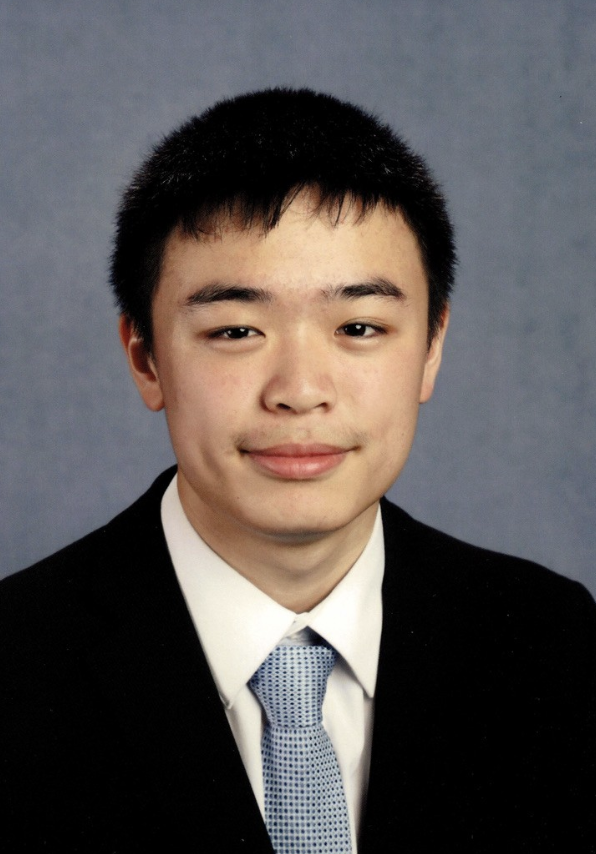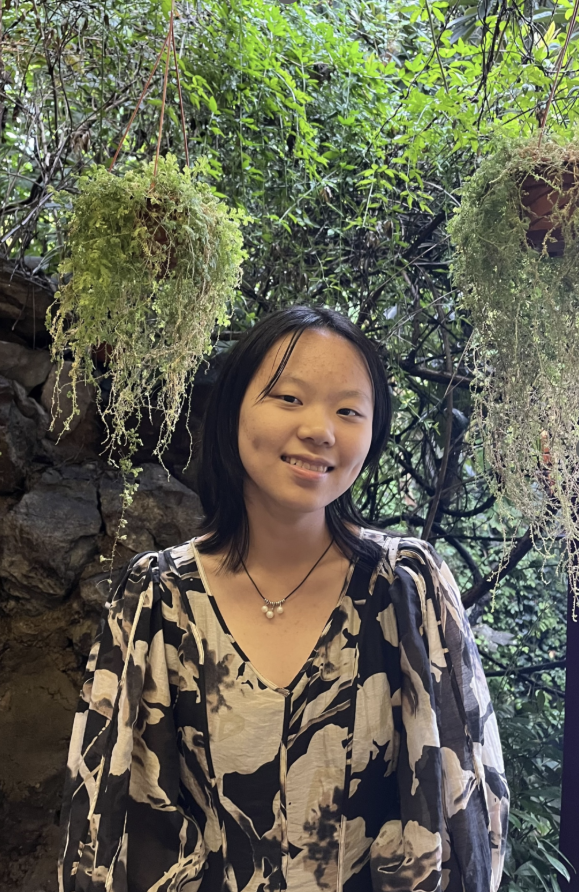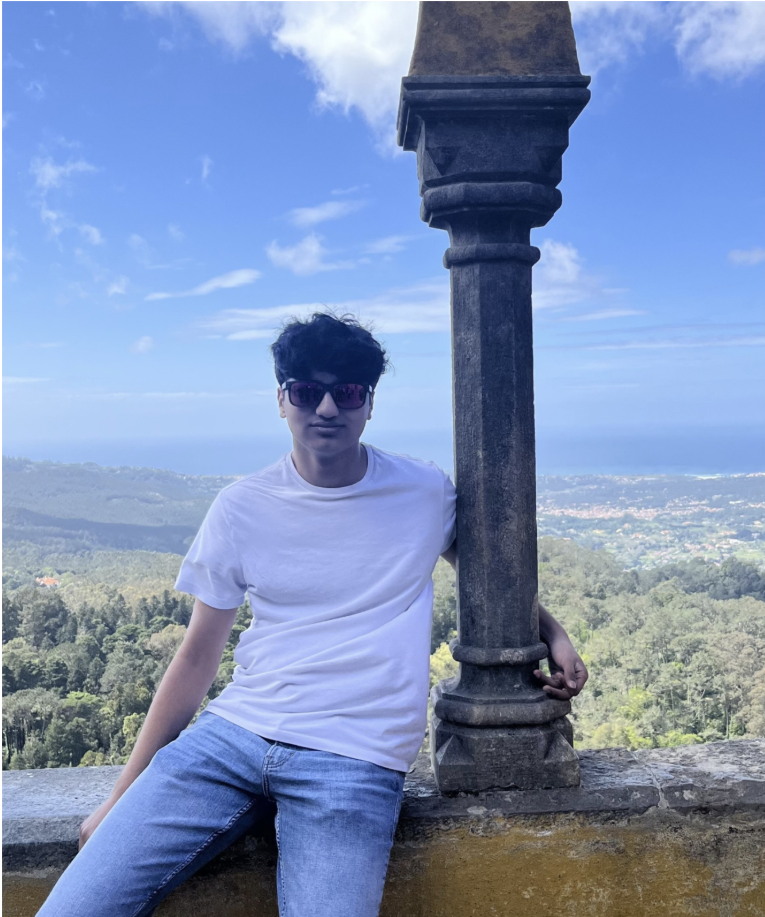2025 Advanced Piano Student Recital
William Wu, Student of Marina Alekseyeva

By Dr. Jason Solounias, Levine Piano Faculty Presenting an advanced recital is considered a towering achievement for a piano student at Levine. At 16-years-old, William Wu not only played a beautiful and demanding recital program, which demonstrated his command of the instrument and passion for music, but it was his second time giving a recital of this sort! To say the audience was impressed would be an understatement.
There is no question that William possesses the means of what could become a gargantuan piano technique and the musical fire to go along with it. In stark contrast to his dramatic piano playing, William has a warm and personable demeanor. If you met him at a cafe, you would never suppose he would be the type to rip through the passagework in the Rachmaninoff second piano concerto, the piece that started his program.
Read William's full review
It is perhaps an unconventional selection for a solo recital, but after learning that William will be attending the famed Aspen Music Festival this summer, it became obvious the challenge of playing the Rachmaninoff concerto movement was a warmup for his likely performances of the piece later on this summer in Colorado. He was accompanied brilliantly by Irina Kats. They made for a dynamic duo, filing the Lang Recital hall with the sonorous melodies the concerto is famous for. William played with passion and energy, bringing to the devilish passagework a clarity one rarely hears in any concert hall. I don’t think he missed a single note. That being said, the performance lacked grandiosity, luxuriating in the sound of the piano, while also capturing the dark mood that surrounds the movement. Nonetheless William gave an incredibly confident and well-prepared performance of the piece. He finished the first segment of the recital with an encore – an etude of Chopin in C minor nicknamed ‘the ocean’. He played it brilliantly and was a clever choice given the etude shares the key with the Rachmaninoff concerto.
The recital continued on to solo pieces, first, the Schumann Variations on the name “Abegg”. William’s brilliant finger-work shined in this piece as well. He captured the jue perle virtuosity — a trademark of Schumann’s early piano works — and played the dazzling passagework with ease. William’s youthful and bright approach made the piece sparkle and come to life with razor sharp precision.
He went on to the Ballade No.2 by Chopin, and here William brought a forceful and dramatic approach. It was an apt choice to follow the variations considering that Chopin dedicated his Ballade to Schumann. William played the cascading arpeggios with stormy confidence and interspersed the calm and swaying lullaby theme, controlling the challenging contrasts in the Ballade with deft skill. The violent contrasts make it a conceptually difficult piece to interpret; a bipolarity indicative not of Chopin, but of Schumann’s two musical personalities Florestan and Eusebius. Perhaps I missed synergy in William’s presentation, a poetic unity to the Ballade’s albeit wildly contrasting music.
The recital closed with a tumultuous rendition of the precipitato movement from Prokofiev’s seventh sonata. Composed in 1943 and premiered by Sviatoslav Richter, this is the second of three so-called ‘war sonatas’, a candid reflection of the composer’s true feelings of the second world war. Prokofiev bears his soul in the dissonant and angular writing – finding some artistic freedom from his otherwise unmemorable compositions constructed on orders to glorify Stalin’s regime. William no doubt understood this context in his volcanic rendition of the movement, teetering on the edge of what one might think possible to control. I did find myself wanting the feeling of inevitability, of a deathly metallic dance — rather than that of a rocket engine — but he still delivered an exciting performance of the piece. It’s a testament to William’s abilities and work ethic to bring such a difficult work to a high pianistic level.
William concluded with an encore from the Bach E major French Suite, which was a soothing balm to the storminess that permeated his recital program. William is an inspiration. His commitment and passion for the piano shines through every note he plays. To present such demanding repertoire is a testament of his dedication to craft of piano playing and speaks for a promising future in music.
Yuhan Li, Student of Dr. Wen-Yin Chan

By Dr. Rachel Chen, Levine Piano Faculty It has been a privilege to witness pianist Yuhan Li’s growth as a musician since we first met at the Indiana University Piano Academy (IUPA) in the summer of 2023. As her former piano camp counselor, I’ve followed her journey since, and it’s been inspiring to see her evolve into a thoughtful and deeply expressive pianist in just two years.
Her Advanced Student Recital on May 30, 2025, was a powerful testament to that growth and dedication. The room was filled with people who loved her, and the energy in the space was full of warmth and encouragement. The evening opened with J.S. Bach’s Partita No. 6 in E minor, BWV 830. This is the last, longest, and most dramatic of his six keyboard partitas. This suite is a masterclass in counterpoint and dance form, challenging both technically and emotionally.
Read Yuhan's full review
Yuhan began with the Toccata, a bold and improvisatory movement marked by expressive flourishes, which she executed with both sensitivity and conviction. In the fugue section, she demonstrated impressive control, incorporating imaginative ornamentation while maintaining a clear sense of direction. Her phrasing through the polyphonic textures was articulated expressive, and the fugue unfolded with poise and beautifully shaped lines.
Next came the Tempo di Gavotta, a stylized French dance with a rhythmic lift created by upbeat figures on the third and fourth beats. Yuhan played it with charm and grace. Her left hand provided a gentle, galloping rhythm while her right hand articulated the melody with poise and precision. The final movement, the Gigue, is one of Bach’s most intricate fugues. It begins with a subject containing 12 different notes—reminiscent of Schoenberg’s twelve-tone rows.
When the second subject appears, the total expands to 14 unique pitches. This is likely a nod to Bach’s own name, which adds up to 14 when converted into numbers (B=2, A=1, C=3, H=8). It’s as if Bach subtly signed the music with his identity. Yuhan delivered this intellectually rich and technically demanding movement with brilliance and clarity. Her tempo was brisk yet controlled, and the texture sparkled with a varied color palette and clarity. It was a confident and elegant performance and an impressive conclusion to the suite!
Yuhan continued with Robert Schumann’s Aufschwung from Fantasiestücke, Op. 12. Schumann was inspired by the contrasting sides of his personality—Florestan, the fiery extrovert, and Eusebius, the dreamy introvert. Yuhan captured both sides beautifully. She played with passion and lyricism, balancing the bold rhythms and tender inner voices with such sensitivity. Her deep understanding of Schumann’s emotional contrasts came through clearly.
She then performed Franz Schubert’s Impromptu in A-flat Major, Op. 142 No. 2. This piece, structured as a theme and variations, showcases Schubert’s lyrical gift and subtle harmonic shifts. Yuhan shaped each variation with delicate dynamics and a singing tone. Her voicing was thoughtful, and her pacing allowed the music to breathe. The use of silence and gentle rubato in the central variations was especially moving. She handled the rhythmic complexity and hemiolas with ease, making the whole piece feel intimate and expressive. After intermission, Yuhan returned with Beethoven’s Piano Sonata No. 15 in D Major, Op. 28 (“Pastoral”).
She opened the first movement with a grounded, timpani-like touch, voicing the lyrical themes with elegance and shaping the development with subtle pacing. Her playing evoked a serene, woodland atmosphere. She made the piano sing, and the final moments of the movement floated like birdsong, full of color and clarity.
Her performance of the third and the fourth movement were especially compelling. The third was crisp and playful, while the finale showcased her energy and control, with clear fugual textures, witty articulation, and joyful momentum. It was a strong and deeply satisfying conclusion to the sonata.
To close the recital, Yuhan played an exciting William Bolcom’s The Serpent’s Kiss from The Garden of Eden. This was my favorite piece of the program this evening because she brought this piece to life with her charisma and flair. Her use of finger snaps, foot stomps, and body movement was both fun and polished, and the audience was fully engaged from start to finish.
It was a brilliant and unexpected way to end the evening. What makes Yuhan truly special isn’t just her musical skill, but her heart. She is a pianist with purpose. She cares deeply about social justice and is committed to advocating for the visually impaired music community. That sincerity comes through in her playing, making her performances deeply human and meaningful.
At the end of the recital, Yuhan gave a short speech that touched everyone in the room. She spoke about the people who have supported her and especially her teacher, Dr. Wen-Yin Chan, whose encouragement and belief helped her grow. Their mutual admiration was so clear. She also thanked her family, especially her mother, who has been there for every lesson and every practice session. It was heartfelt and genuine. Any longer, and we all might have cried. It was a beautiful, meaningful concert, and I was proud to witness it.
Raghav Belle-Trichur, Student of Dr. Deborah Lloyd

By Dr. Luke Ratcliffe, Levine Piano FacultyThis past weekend, I had the pleasure of attending Raghav Trichur’s public piano recital at the West Falls Church campus, and I’m still struck by the scope and ambition of the program.
It’s always exciting to witness a young pianist emerge from his early student years into greater maturity, taking on major works from the literature with seriousness and depth. Raghav’s playing reminded me why I love this art form: at its best, it invites us into something riveting and personal.
Read Raghav's full review
The program centered around two of Beethoven’s most iconic piano sonatas. Raghav began with the Sonata in C-sharp Minor, Op. 27 No. 2, the beloved “Moonlight”. In the opening movement, he captured the spacious stillness of the music with impressive poise, allowing the triplets to shimmer without ever sounding mechanical. The tempo was slower than I was used to hearing, however the pacing was natural and unfussy, bringing the audience into a mystical world, evincing early signs of the composer’s experiment with form, as both the Op.27 sonatas are aptly titled “Sonata quasi una fantasia”.
As the sonata progressed, Raghav built tension steadily, leading to a thrilling third movement that was alive with fire, energy, and direction. It was a bold start to the program and already demonstrated Raghav’s capacity to balance control with emotional depth. Next came Chopin’s Étude in G-flat Major, Op. 10 No. 5, the so-called “Black Key” Étude. Here, Raghav showed a completely different side of his musical personality—bright, virtuosic, and bursting with exuberant charm. The right-hand figurations sparkled with clarity and precision, while the left hand provided a firm and punctuated foundation. His articulation was playful without ever becoming glib, and the touch was delicate yet confident. The tempo never felt rushed, which allowed Chopin’s wit and buoyancy to shine through.
But it was Beethoven’s Appassionata Sonata, Op. 57, that revealed the true breadth of Raghav’s artistry. From the opening measures of the first movement, it was clear that this performance would be intense. The music erupted with restless urgency, driven by rhythmic intensity and shaped with careful attention to contrast and color in the second subject. The development section was especially gripping, with crisp articulation and a fearless approach to Beethoven’s harmonic shocks.
The second movement offered a moment of reflection. Raghav found a beautiful balance between lyricism and structural clarity, letting each variation unfold with a natural sense of pacing. The finale, however, was where the performance reached its most exhilarating heights. He tackled the movement’s technical demands with focus and fire, never losing sight of the broader emotional arc. The electrifying coda exploded with energy that left the hall silent for a brief moment before the applause began. Of course, behind every remarkable performance is a strong support system.
It was clear how much care had gone into preparing this recital—from the keen guidance of his teacher, Dr. Deborah Lloyd, to the evident support of family and friends in attendance. That kind of encouragement makes all the difference, and it was moving to see how it contributed to such a confident, expressive performance. This recital was a compelling mix of intellect, emotion, and courage. I wish Raghav well in his continued studies and growth as a musician.
